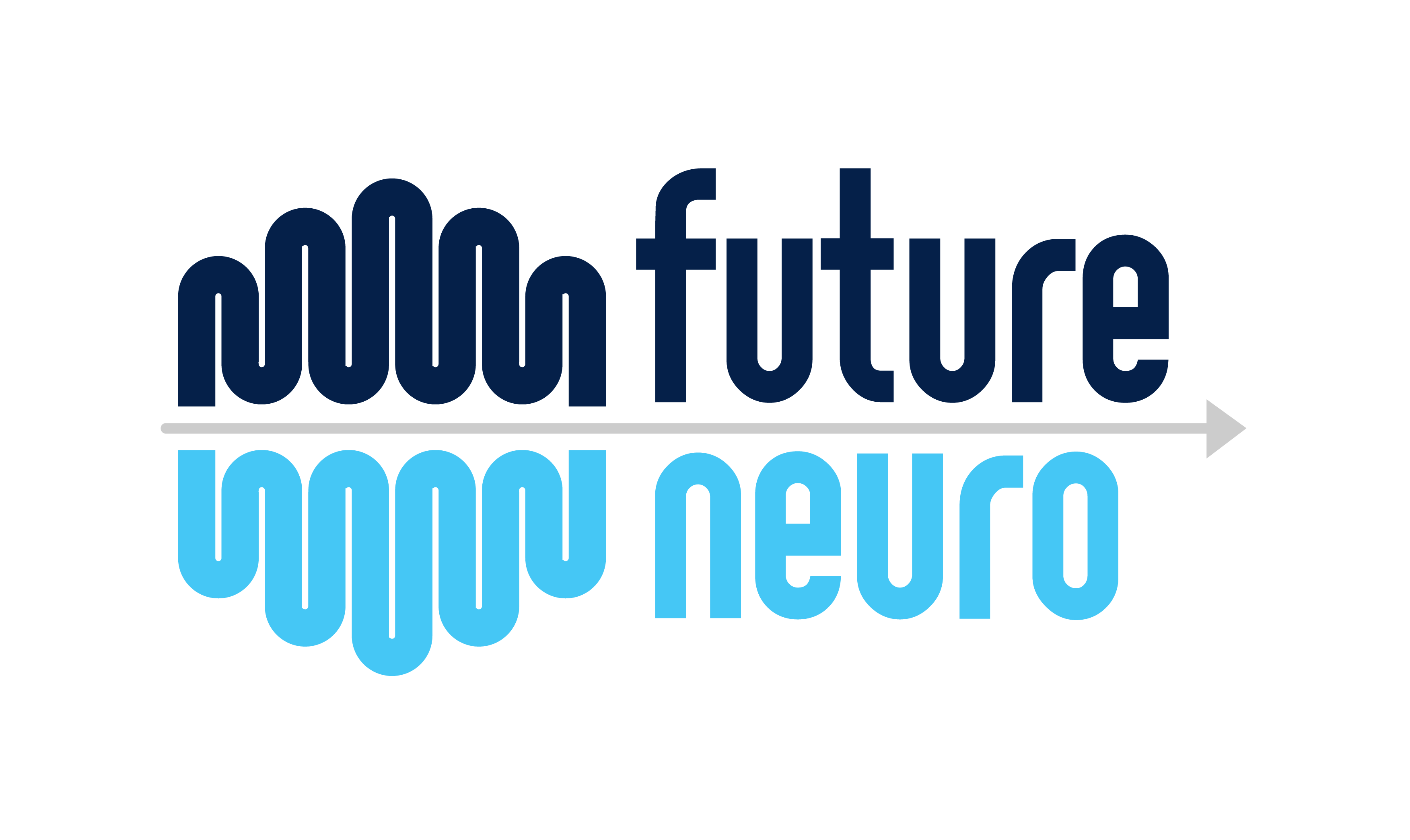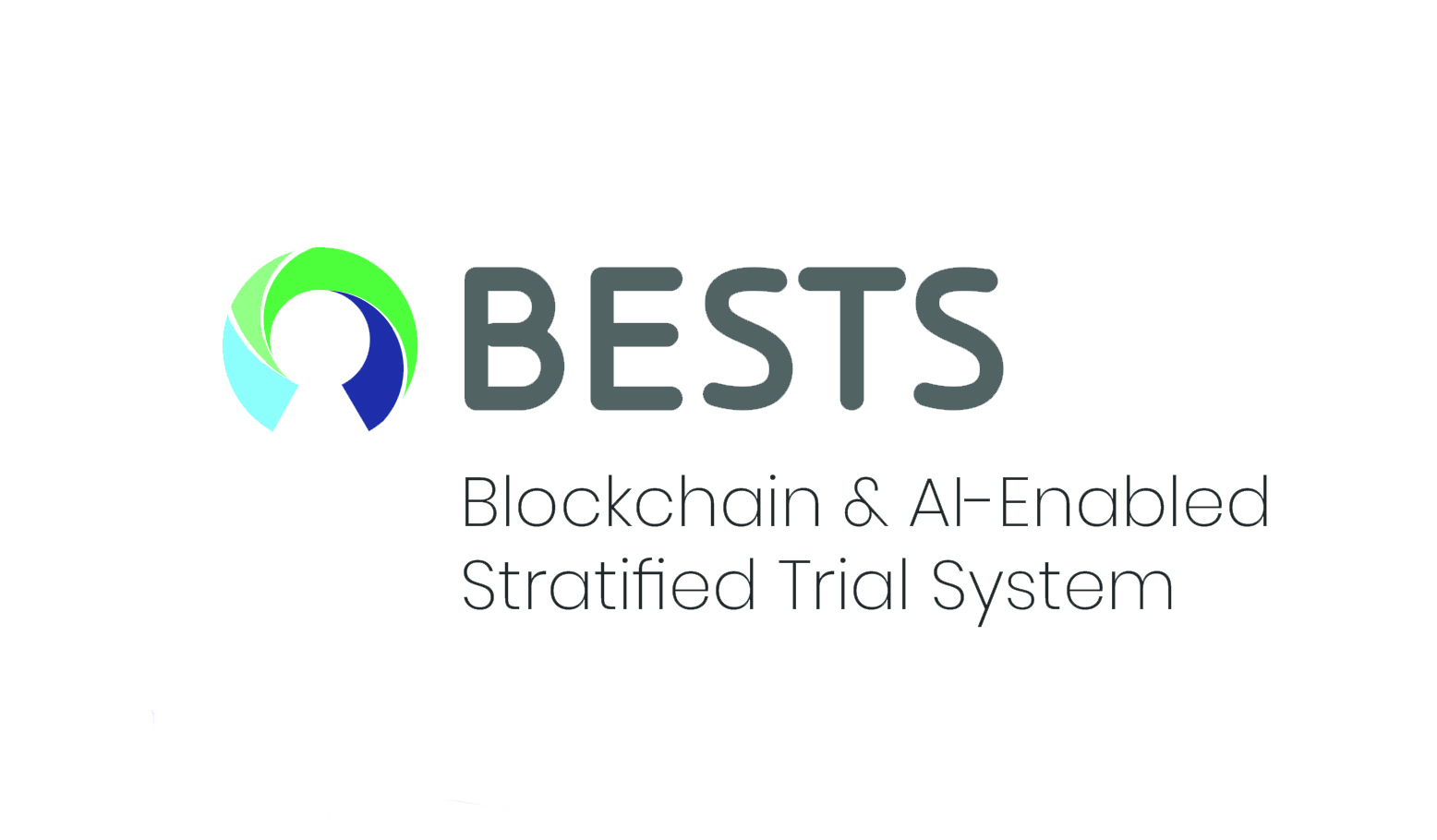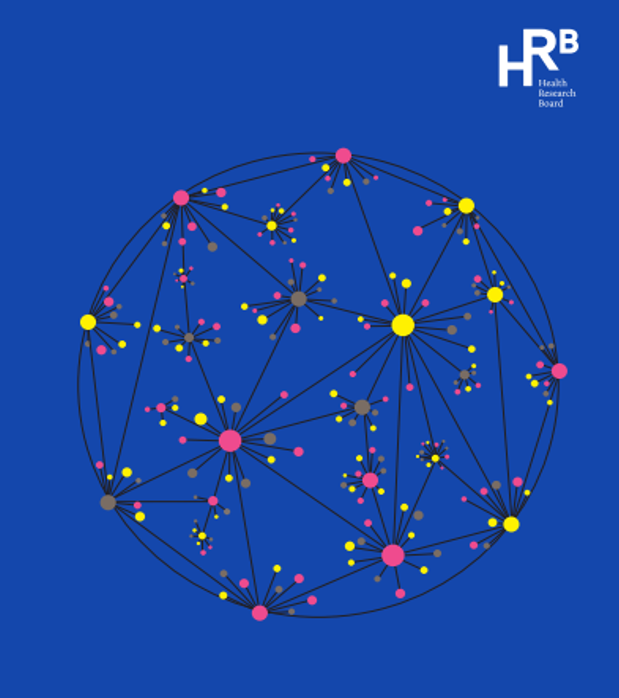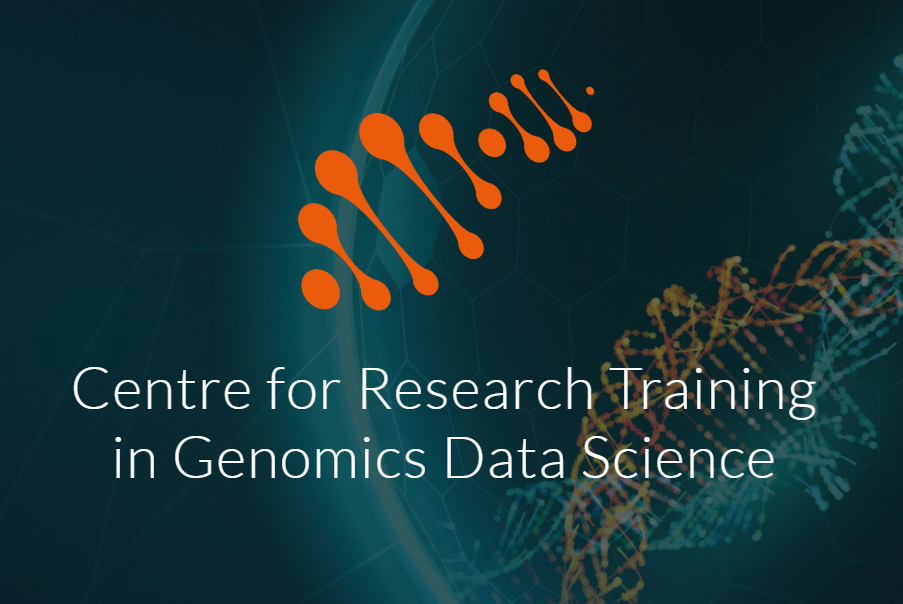Our Research
Breakthroughs
We have already made substantial breakthroughs in the short lifetime of the centre. These advances in science will enable us to further our knowledge and ultimately improve the lives of people with neurological diseases.
New molecules discovered in blood samples from patients with epilepsy may support diagnosis and/or predict when a seizure may occur
FutureNeuro researchers discovered a new type of molecule circulating within blood in epilepsy patients. These were fragments of transfer RNA, a key component of a cell’s machinery for building proteins. Levels of tRNA fragments were found to be elevated in blood samples taken before seizures in patients. Levels of some increased the closer a patient came to having a seizure and, importantly, these molecules did not change in patients diagnosed with psychogenic (non-epileptic) seizures, meaning epileptic activity was responsible. The discovery has significant scientific and translational implications. It suggests that brain hyperactivity begins hours in advance of a seizure in certain patients. This fits with recent clinical data that showed seizures are cyclical (and thus potentially predictable) in many people with epilepsy. If a patient could assess their risk of having a seizure on a particular day this would transform the lives of people with poorly-controlled epilepsy. The results create a unique and internationally-leading position for FutureNeuro in this new area of neurobiology and presents major opportunities for diagnostic and therapeutic development.
This research was published in the Journal of Clinical Investigation
Resolving the genetics of epilepsy, predicting drug side effects and population structure in Scotland and Ireland.
FutureNeuro researchers demonstrated that whole exome sequencing, in combination with array-CGH (comparative genomic hybridisation), provides a diagnostic rate of 30% in adult epilepsy patients with co-morbid intellectual disability. A slightly higher diagnostic rate of 41% was found in paediatric patients (Benson et al, Eur J Hum Genet). This work is important as it provides additional evidence that justifies genomic testing in the adult epilepsy clinic. Further, we have strong evidence to suggest that genome variation can help predict anti-epileptic drug (AED)-induced psychosis. This would form the basis for a genetic test to identify those at risk of a dangerous adverse reaction to an otherwise excellent anti-epileptic drug.
FutureNeuro investigators have described fine-scale population structure across Britain and Ireland, relevant to the optimal design of genetic mapping efforts in neurology and other traits, and the collection of control samples representative of genetic variation in the regions (Gilbert et al Proc Natl Acad Sci USA 2019). Such high-resolution genetic maps can provide a platform to contextualise difference in disease incidence across geographic regions.
FutureNeuro investigators played a leading role in a landmark publication on the genetics of common forms of epilepsy, which included data from 50,000 people (Nature Communications 2018). Results revealed novel risk loci and point to potential drug repurposing for epilepsy, based on underlying genetically-inferred pathophysiology. FutureNeuro also contributed to research as part of major international projects such as ENIGMA that revealed important genetic variants and how these influence brain structure and volume of poorly-controlled epilepsy. The results create a unique and internationally-leading position for FutureNeuro in this new area of neurobiology and presents major opportunities for diagnostic and therapeutic development.
New human cell models of ALS
FutureNeuro has developed new human models for ALS research, the results of which were reported in Stem Cell Research (2019). Using the “Yamanaka” technique, Prof Shen’s team took skin cells donated by Prof Hardiman’s patients and re-programmed them using a gene therapy-like approach, into pluripotent stem cells. They carefully analysed the features of the resulting cells, confirming they have all the correct attributes. These cells can now be coaxed into becoming motorneurons (or other brain cell types) and studied in the lab. Because they carry the original genetic data from the patient these models can help us understand the causes of disease in patients or used to screen compounds for potential protective effects for the treatment of ALS.
New microRNA targets for epilepsy and rare neurodevelopmental disorders
Research by FutureNeuro and collaborators has generated important advances on the development of microRNA-based treatments for chronic and rare neurological diseases. Prof Henshall’s team helped identify a new microRNA target for epilepsy. Published in the Journal of Neuroscience, the team demonstrated that antisense oligonucleotides targeting microRNA-135a suppressed epileptic seizures in mice. Since the same microRNA was found to be upregulated in brain tissue from patients with drug-resistant epilepsy the results are clinically relevant. The team has a review on the topic of microRNA treatments in submission at Nature Reviews Neurology.
World’s first integrated genomics module in an epilepsy-specific electronic patient record
FutureNeuro researchers reported the first ever integration of a genomics module into a national electronic patient record (EPR) for epilepsy (Delanty et al. Epilepsia 2019). The epilepsy-specific EPR already contains deep clinical phenotype and life-style data on ~10,000 people with epilepsy in Ireland (>20% of all people with epilepsy in the country). The new research, led by Mary Fitzsimons and professors Cavalleri, Delanty and Doherty is embedding genomic medicine into the clinical pathway by enabling safe and efficient use of genomic information for diagnosis and treatment of epilepsy. The clinical interpretation of genomic sequence in the context of epilepsy predisposition and treatment is a rapidly evolving field. For example, following genetic testing (exome, gene panel, array CGH etc.) a multi-disciplinary team (MDT) of clinical epileptologists, geneticists, and specialist epilepsy nurses come together to leverage their combined expertise in reviewing data for individual cases. At the MDT, candidate pathogenic gene variants are presented and discussed in the context of the individual’s phenotype to determine the likelihood of an association between the individual’s epilepsy and the presented genetic data. Based on the discussion, the MDT decides on what further action/no action should be taken in relation to the management of the individual’s epilepsy. The national epilepsy EPR has been enhanced to include functionality to support the gene-panel MDT meeting. This project combines genomic medicine and eHealth technologies which are both growing fields that are destined to change the way healthcare and services are delivered. To date this new EPR functionality has facilitated genomic medical care for almost 150 individuals with epilepsy. Future work may include addition of decision- support pop-ups to aid clinicians in their practice of genomic medicine at the point of clinical care.
Diagnostics
We are applying sequencing, advanced informatics and nanomaterials technology to the discovery, detection and interpretation of biomolecules from patients and from our biobanks collected via our national clinical networks, to deliver faster, more accurate diagnosis.
Our Diagnostics programme is distinguished by:
- National clinical networks with thousands of patients under the care of FutureNeuro affiliated clinicians and large, well-phenotyped cohorts and datasets for ALS and epilepsy
- Excellence in genomics, noncoding RNA profiling and annotation, deep phenotyping, cognitive profiling, neuroelectric signalling and structural analysis
- Leading roles in international consortia, allowing questions to be tested in larger cohorts
- Technology platforms for point-of-care tests
Epigenetics
Genomic diagnostics
Brain structure and imaging
Technology for rapid point-of-care diagnostics
Epidemiology
Non-coding RNAs
Basic mechanisms of neurological disease
Precision medicines and infrastructure for translation to the clinic
Human iPSC's
Pharmacogenomics
Purinergic Signalling
Molecular biomarkers for acquired and rare, genetically-defined epilepsies and Motor Neurone Disease
Diagnostics areas of expertise
Current Projects
Consolidating and expanding a molecular diagnosis and pathogenic phenotyping pipeline, in epilepsy and ALS
The overall goal of this project is to identify genetic variation that can be used to inform on the pathogenesis and treatment of neurological disease.
Development of Companion Diagnostics
Our specific objective is to improve patient outcomes and reduce overall health costs by measuring the concentration of biomarkers of specific medical conditions in blood/plasma/CSF.
Human stem cell modelling for epilepsy and Amyotrophic Lateral Sclerosis (ALS)
The overall goal of this project is human stem cell modelling: Electrophysiological and Drug Discovery Phenotyping Platform for Delineating Molecular Mechanisms and Novel Treatments
Advancing the translation and commercial development of circulating biomarkers of seizure eminence for the management of chronic and rare neurological diseases.
This project explores the value of biomarkers at the earliest stage of the patient journey (upon first presentation of a seizure), test the benefits of different combinations of the biomarkers for epilepsy and rare diseases (Rett syndrome), extend evidence for pathophysiological links to disease, and begin the process of commercialisation toward a clinical/diagnostic test using either existing technology or techniques developed by the Centre.
Development of miRNA biomarkers for acquired and rare, genetically defined paediatric epilepsies and ALS
The aim of this project is to develop and apply RNA sequencing techniques and bioinformatics tools to characterise miRNA and other small noncoding RNAs within accessible biofluids such as plasma as well as the chemical changes to these RNAs.
Industry Projects
NEURO-GENSEQ Informatics interrogation for rapid precision genetic diagnosis
The overall goal of this two-year Targeted Project is to develop a clinical decision support platform for epilepsy.
Epi-Sense - Evaluating Seizure Tracking technology in epilepsy models.
To evaluate Seizure Tracking technology in epilepsy models.
MS-EPR Early Stage Development of an Irish MS Electronic Patient Record
The purpose of this project is to support the development of an Irish Multiple Sclerosis (MS) Electronic Patient Record (EHR) in Ireland.
Epi-SubQ : Evaluating the performance of a portable brainwave recording system in the monitoring of epilepsy seizures.
To evaluate the performance of a portable brainwave recording system in the monitoring of epilepsy
MS-COG A Multidisciplinary Study of Cognition in Multiple Sclerosis
To investigate the prevalence and nature of cognitive impairment and provide quantitative correlates of cognitive impairment, using state of the art neurophysiologic technologies in two large clinic based cohorts of patients with multiple sclerosis.
Therapeutics
We are developing treatments that will control or correct the genes and networks in the brain that underlie disease or drug resistance.
Our Therapeutics programme is distinguished by:
- Multi-targeting and epigenetic therapies including noncoding RNAs
- Blood-brain barrier manipulation and “precision” therapeutics
- Disease modelling and screening capacity – in vivo models of ALS, genetic , neurodevelopmental and “acquired” epilepsies, and iPSCs
- Delivery technologies – antisense, gene therapy, small molecule/ traditional drug
- Trial-ready clinical neurology network
Gene Therapy
Pharmacogenomics
MicroRNA/noncoding RNA
RNA-targeting therapeutics to restore normal brain excitability
Novel screening models for disease modifying treatments
Clinical Trials
Purinergic Signalling
Antisense Oligonucleotides
Neuronal stem cell technology to discover drug treatments
Companion nanotechnology solutions for the delivery of therapies to affected brain region
Epigenetics
Blood Brain Barrier
Immuno-neuroprotection
Precision medicines and infrastructure for translation to the clinic
Therapeutics areas of expertise
Current Projects
miRNAs as novel targets to treat genetically-defined paediatric epilepsies
Investigting if miRNAs can be targeted to reduce the development of seizures and epilepsy for genetic causes of epilepsy or neurodevelopmental disorders that have epilepsy as a co-morbidity.
Cannabinoid-miRNA crosstalk in epilepsy
The aim of this project is to investigate additional models in which CBD may exert anti-seizure effects.
A stepwise integration of clinical phenotype, circulating RNA biomarkers, and neurophysiology to support development of prognostic biomarkers and stratification tools for MND.
To continue to lead in sub-phenotyping of ALS patients and the initiation of biomarker-supported clinical trials.
Blood Brain Barrier opening solutions for macromolecule-based therapeutics
This project has the primary goal of developing molecular tools to enable modulation of the blood-brain barrier (BBB).
Determining the effects of gene-environment interactions on disease progression in models of ALS and PD
The overall goal of this project is to develop models that incorporate the effects of metabolic and environmental stressors on cell survival, stress signaling, and production and secretion of stress-associated sncRNA in cellular models of C9ORF72 repeat expansion toxicity (ALS / FTD model) and a-Synuclein toxicity (PD model).
Targeting mRNA polyadenylation for disease-modification in epilepsy
This project will describe the role for the post-transcriptional regulatory process of mRNA polyadenylation in epilepsy.
Analysis of tiRNA-protein complexes and development of tiRNAs as therapeutics and biomarkers in ALS and epilepsy
This project aims to perform a systematic analysis of tRNA-derived fragments and their association with protein complexes in ALS and epilepsy models.
tRNA fragments as therapeutic targets for epilepsy and other neurologic disorders associated with dysregulated network activity
This project will address the biological effect and therapeutic potential of FutureNeuro identified epilepsy-associated 5’tsRNAs.
A gene therapy based approach to preventing neurodegeneration associated with epilepsy
Assessment of the retinal degeneration associated with glaucoma. This approach could also be highly amenable to treating neurodegeneration associated with epilepsy.
Mechanisms underlying disease-modifying effects of targeting purinergic signaling and therapeutic applications in refractory paediatric epilepsies
The overall goal of this project is to investigate targeting the purinergic system as a novel therapeutic for refractory paediatric epilepsy and understand the underlying mechanisms of any potential effect.
Industry Projects
EPIPEDIMIR microRNA based treatment for paediatric epilepsies
This targeted project with industry partner Roche is focused on extending the discoveries made on miR-134 inhibition by antisense oligonucleotides (antagomirs) to other disease indications.
Functional significance of METTL3 in epilepsy
To test whether the METTL3 pathways are potential targets for the treatment of epilepsy.
Barrier X - Targeted Research Project
To investigate whether seizure activity is related to Blood Brain Barrier permeability and if seizure severity/load impacts on the long-term behavioural deficits.
PURINO-Epi P2X7R antagonists for disease-modification in epilepsy
This targeted project with industry partner Janssen is focused on inhibition of the ATP-gated P2X7 receptor (P2X7R) in epilepsy.
An examination of the impact of drugs on experimental models of cortical rhythms in vitro
The overall goal of this project is to gain a better understanding of medication dosage levels for people with epilepsy.
ROADS MicroRNA discovery and targeting in neurodevelopmental disorders associated with epilepsy
This targeted project with industry partner Roche aims to identify further, novel miRNAs that could be targeted to treat rare neurodevelopmental diseases.
ANGEL-MIR Anti-miR-134 for Angelman’s syndrome
This project would pursue specific targeting of miR-134 in Angelman’s syndrome (AS) mice
eHealth
We are enabling a continuously learning and innovative healthcare system through careful design, development and implementation of eHealth technologies.
Our eHealth programme is distinguished by:
- An Epilepsy Electronic Patient Record (EPR) that supports a National Network of Care across Ireland (> 9000 individual longitudinal records, in more than 10 centres)
- An electronic patient portal (linked to the Epilepsy EPR) to support patient empowerment, improved continuity of care and increased patient inclusion in the research pathway
- The world’s longest-running ALS register containing patient and care-giver data
- Expertise in design-thinking and ethnography
- Experience in health services research and implementation science
- Engagement with patient and family organisations (e.g. Epilepsy Ireland , IMNDA, IPPOSI) and the HSE to facilitate co-creation of eHealth solutions in partnership with practitioners, engineers and the public
Ethnography
Patient Safety
Co-Design Research
Digital Pathways
Quality and Process Improvement
Supporting the continuity of care and patient empowerment
Data Analytics
Patient Registers
Electronic Patient Portals
Co-producing healthcare
Real world data for real world evidence
Embedding precision medicine into the clinical pathway
Applied Ethics
Population Health
Electronic Health Records
User Experience Design
Enabling a network of neurological care
eHealth areas of expertise
Current Projects
Creating a secure EHR research data hub for FutureNeuro
This project is about exploring the socio-technical ensemble of people, process and technology required to ethically and safely unlock the data collected and stored in electronic health records (EHRs) and disease registers to enhance laboratory-based molecular research and to exploit eHealth technology to translate discoveries to improve the lives of people living with neurological conditions
Development of an e-Health platform for the National ALS Multidisciplinary Clinic
This project will provide a knowledge collection and collation system for complex cross-disciplinary interactions, master documents for clinical interactions and e-health solutions to complex cross-disciplinary evaluation and care.
Mining the EHR and ALS Register and development of a Clinical Decision Support System
WP11 will use data collected within the EHR to deliver three aims:
- profiling of the epilepsy and ALS populations, based on clinical parameters
- development of a clinical decision support system
- the identification of High Cost High Need (HCHN) patients
A description of the evolution of phenotype in genetic epilepsy, from paediatrics through to adulthood and old age.
Standardisation of the National Epilepsy EPR, using the Human Phenotype Ontology (HPO) , with this standardisation, we can map EPR fields to equivalent HPO concepts that allow us to compare and aggregate our utputs with other international research groups and link to standardised genetic databases outputs with other international research groups and link to standardised genetic databases.
Industry Projects
EPI-HEALTH To design, develop and implement a voice-based user interface to the Epilepsy Patient Porta
The project aims to design, develop and implement a voice-based user interface to the Epilepsy Patient Portal (EPP).
EPI-TECH EHealth ecosystem for patient co-designed technological solutions for wellbeing and self-management
Using a qualitative approach, this project seeks to gain a greater understanding into the lived experience of people with epilepsy (PWE), their carers’ and healthcare providers (HCP).
EPI-DIVE Exploration of clinical markers of response to treatment in people with epilepsy
This study will investigate whether certain clinical characteristics can predict seizure response to anti-epilepsy drug (AED) treatment.
Development of a national register in Ireland for Rett Syndrome.
Engage with clinicians, families and support groups to identify and enroll patients to Rett Register while complying with governance best practice for input, storage, anonymization, processing of data for research purposes
Key Enabling Technologies
We have three Platform technology cores that support FutureNeuro research programmes and Targeted Projects. They represent infrastructure and human capital developed through institutional, exchequer/non-exchequer investments.
- Technology Platform I: Genomics, bioinformatics and computational biology.
- Technology Platform II: Preclinical disease phenotyping
- Technology Platform III: Clinical research and trials infrastructure
Technology Platform I: Genomics, bioinformatics and computational biology.
This platform delivers the Centre’s expertise and capacity in DNA and RNA sequencing, bioinformatics and systems biology for projects.
Single Cell Sequencing: 10x Chromium Platform
The 10X chromium platform is the leading system in the world for single cell sequencing. Single cell sequencing is now essential and indispensable for cutting-edge biomedical research.
We are using this technology to:
- Identify and characterize the gene expression of all cell types within healthy and diseased tissue
- Determine the effect (mechanism), at single cell level, of any therapeutic treatment including gene therapy, oligonucleotide and small molecules
- Define the open/closed chromatin state (epigenetic status) at single cell level using ATAC-seq
- Analyse and understand cellular heterogeneity and how this contributes to a biological system
- Perform cellular phenotyping with single cell RNAseq to identify novel targets, biomarkers and cell types and states
- Perform high-throughput and high-resolution functional genetic screens in tens of thousands of cells simultaneously
Simulation and Modelling platform for Molecular Communication Neuronal Network for Epilepsy
This involves the construction of a simulation platform, which will lead to a “mini-silicon brain” that will integrate parts of the hippocampus, as well as the cortex, to demonstrate the seizure spreading activities through various parts of the brain. The validation will be established through experimental data as well as data from open repositories to determine the accuracy of the simulation model to real neural activities and spiking sequences. The ultimate aim of the project is to lay the platform for developing a mini-silicon brain that will avoid the use of animal testing.
Technology Platform II: Preclinical disease phenotyping
This platform provides the Centre’s expertise and capacity in modelling neurological diseases; in vitro cellular, iPSC, in vivo-whole animal. These models are complemented by extensive genetic and pharmacologic functional screening capacity and molecular-cellular-animal imaging.
Establishment of a core facility for the functional characterization and high-content imaging of human, excitatory and inhibitory cortical neurons derived from induced Pluripotent Stem Cells (iPSCs).
We are establishing a state-of-the-art human iPSC research platform which caters for the differentiation of iPSC-derived cortical neurons on-site. The morphological, genetic and biophysical features of these neurons can then be extensively characterised and validated through the utilisation of pre-existing technologies of FutureNeuro, such as the multi-electrode array (MEA), electrophysiology, single-cell and high-content imaging, and genetic and molecular analysis platforms. The addition of the iPSC core facility enables us to become a centralised platform for the study of patient-derived in vitro cellular model of diseases.
The correlation between molecular markers, brain physiology and disease presentation in mouse models and people.
This platform provides the RCSI-based team with access to mice and tissue samples for analysis of the pathways of interest. The collaboration with TCD also provided joint study design including assistance with selection and appropriate analysis of developmental-stage specific phenotypes of the mice (motor, cognitive, epileptic), and to establish the Rett model mouse colony at RCSI.
The genetic pleiotropy of neurodegenerative mutations
This platform is leveraging our established understanding of the genetics of neurological diseases to better delineate the genetic mechanisms of ALS, epilepsy and encephalopathies for precision diagnosis, patient categorisation and identification of potential therapeutic targets.
Development of a Bioresource for FutureNeuro targeted Neurological Disorders (ALS)
We are developing a Bioresource for Amyotrophic Lateral Sclerosis (ALS). Our objective is to establish the infrastructure by which the biological and clinical aspects of neurological disease can be integrated using biosamples. This will enable a sustainable infrastructure for collection and storage of biomaterial, linking FutureNeuro with Tissue and Brain Bank, a pipeline of PBMC and fibroblasts for iPS derivation and potential sharing of infrastructure with other Neuroscience Groups.
Enabling the FutureNeuro National Clinical Genomics and Biomarker Network (Epilepsy)
This platform expands our current biomaterial collection efforts into a more formal national clinical genomic and biomarker network that will in turn facilitate genetic diagnosis, precision therapeutics, and gene discovery in neurological disease in Ireland. Our clinical partners in this platform are facilitating and promoting access to people with active epilepsy, people admitted for video-EEG monitoring and people undergoing epilepsy surgery.
Technology Platform III: Clinical research and trials infrastructure
This platform provides the Centre’s clinical infrastructure including Ireland’s first clinical research centre (CRC), based at RCSI’s Beaumont hospital campus, the epilepsy Electronic Health Register, ALS Register, as well as the collections of patient DNA and biofluids for our research.
National Projects
In Ireland, a number of government agencies invest in excellent academic researchers and research teams who are most likely to generate new knowledge, leading edge technologies and competitive enterprises. FutureNeuro researchers have generated over €4.5 million in Exchequer funding since we launched.
Blockchain & AI-Enabled Stratified Trial System (BESTS)
We will work alongside a team of industry experts to deliver a Blockchain and AI-Enabled Stratified Trial System (BESTS). The BESTS solution will leverage the power of multiomics big data to connect a patient to clinical trials and other research projects.
Data Access Storage Sharing & Linkage (DASSL)
Consortium with infrastructure, clinical, health informatics expertise to prototype a national infrastructure base on international best practice.
Centre for Research Training in Genomics Data Science
The first PhD training initiative of scale with an all-Ireland remit, the Genomics Data Science CRT will train 115 PhD students across the island of Ireland over the coming seven years, with 15 to be based in Northern Ireland and 100 in the Republic of Ireland. The CRT is a partnership between the National University of Ireland Galway, University College Dublin, Trinity College Dublin, the Royal College of Surgeons in Ireland, University College Cork and Queen’s University Belfast.
European and International research collaborations
We have a number of ongoing internationally-funded projects related to the work of the Centre. These include:
PD-MitoQuant
Funding source: EU, EFPIA, Parkinson’s UK
Start date: 1 February 2019
End date: 31 July 2022
‘PD-MitoQUANT: A quantitative approach towards the characterisation of mitochondrial dysfunction in Parkinson’s disease’ (Grant Agreement ID: 821522; Lead: Professor Jochen Prehn [RCSI]) is an Innovative Medicines Initiative 2 (IMI2) project that brings together 14 partners from 9 countries, including 4 multinationals (Lundbeck, MIMETAS, TEVA, UCB), 1 Irish SME (Pintail Limited), 1 German based software company (GeneXplain GmbH), 5 European Research Centres (the German Center for Neurodegenerative Diseases [DZNE], the Italian Neuroscience Institute of the National Research Council [CNR], the French Centre National de la Recherche Scientifique [CNRS], Paris Brain Institute [ICM], the Radboud University Nijmegen Medical Centre [RUMC]), University College London, and a patient led charity (Parkinson’s UK) to:
- improve our understanding of mitochondrial dysfunction in Parkinson’s,
- identify and validate molecular drivers and mechanisms in Parkinson’s,
- discover innovative therapeutic targets that can be further progressed by the EFPIA partners in future.
PD-MitoQUANT supports a multi-disciplinary team with expertise in mitochondrial biology, disease models, systems modelling, bioinformatics, preclinical research/imaging, and patient engagement.
Retina Rhythm
Funding source: EU
Start date: 1 July 2020
End date: 30 June 2025
‘Retina Rhythm: Investigating the role of the inner retina in age-related macular degeneration’ (Grant
Agreement ID: 864522) is an ERC Consolidator Grant awarded to FutureNeuro Principal Investigator
Professor Matthew Campbell (TCD) to investigate the underlying cause of a very common form of blindness
in the elderly called age-related macular degeneration (AMD), which affects up to one in four people over
the age of 60 in Ireland. Retina Rhythm aims to:
- develop and characterize newly established mouse and non-human primate models of AMD by
disrupting circadian cycling of the inner blood retina barrier (iBRB), - develop a novel Adeno-Associated Virus (AAV) based vector with the ability to re-establish
dynamic circadian cycling of the iBRB and treat AMD, - prove that dysregulated circadian-mediated iBRB cycling mediates AMD pathology in human
subjects.
Genomic Data Infrastructure (GDI) project
Funding source: EU (Digital Europe), HRB
Start date: 01 Nov 2022
End date: 1 Nov 2026
Genomic Data Infrastructure (GDI) Ireland is part of a consortium of 20 EU Member States with the goal of
enabling access to genomics and corresponding clinical data across Europe by creating secure data
infrastructure. The project will facilitate a cross-border federated network of national genome collections for
biomedical research and personalised medicine solutions.
Professor Gianpiero Cavalleri (FutureNeuro Deputy Director, RCSI), and Professor Denis Shields,
(University College Dublin), are Co-Directors of the GDI Ireland project with Professor Aedin Culhane
(University Limerick) and Professor Markus Helfert (Maynooth University and SFI Empower SPOKE
Director) as co-applicants.
AVanti-134
Funding source: Wellcome Trust
Start date: 1 November 2021
End date: 30 October 2023
‘AAV9-anti-miR-134 (AVanti-134): Translating an effective anti-epilepsy microRNA inhibition approach
from pre-clinical proof-of-principle to a clinic-ready, virally-delivered treatment’ is a Wellcome Innovator
Award, which aims to develop a gene therapy-based treatment for refractory epilepsy, led by FutureNeuro
Director Professor David Henshall (RCSI) .
NeuroInsight

Funding source: EU, FutureNeuro, Insight Centre for Data Analytics
Start date: 1 June 2021
End date: 31 May 2026
‘NeuroInsight: Advanced skills for data analytics in neurological diseases’ (Grant Agreement ID:
101034252; Lead: Professor Gianpiero Cavalleri [RCSI] ) is a Marie Skłodowska-Curie Actions (MSCA)
COFUND managed by FutureNeuro and the Insight Centre for Data Analytics that will attract 33 research
fellows to Ireland to engage in interdisciplinary and intersectoral research at the interface of neurological and
data science.
If you are an experienced researcher (in possession of a doctoral degree or with at least 4 years of full-time
equivalent research experience) interested in applying for a NeuroInsight Fellowship, please contact
neuroinsight@rcsi.ie.
IMPETUS
Funding source: Wellcome Trust
Start date: 1 March 2021
End date: 1 September 2024
‘IMPETUS: Investigating Markers derived from Proteomics for Estimation of Transition from the Ultra
high-risk State to psychotic disorder’ is a Wellcome Innovations Flagships grant awarded to FutureNeuro
Funded Investigator Professor David Cotter (RCSI) to further develop a blood test that can predict whether a
person is likely to develop a psychotic disorder.
PRIME

Funding source: EU
Start date: 1 February 2021
End date: 31 January 2025
‘PRIME: A Personalized Living Cell Synthetic Computing Circuit for Sensing and Treating Neurodegenerative Disorders’ (Grant Agreement ID: 964712; Lead: Dr Deirdre Kilbane [WIT]) is a Horizon 2020 EU Future & Emerging Technologies (FET) Open project that brings together academic and industry partners from Ireland (Waterford Institute of Technology, RCSI), Denmark (Aarhus University, Omiics ApS), Italy (University of Ferrara), Cyprus (EPOS-Iasis Research and Development, Ltd.) and Finland (Tampere University) to build ‘living brain implants’ that detects seizures before they occur and trigger the pre-emptive release of therapeutic molecules.
InterTAU
Funding source: EU
Start date: 1 January 2020
End date: 30 June 2025
‘InterTAU: Integrative structural biology of pathological tau protein, an appealing therapeutic target for
Alzheimer´s disease modifying drugs’ (Grant Agreement ID: 873127; Lead: Professor Jochen Prehn [RCSI] )
is a Marie Skłodowska-Curie Actions (MSCA) Research and Innovation Staff Exchange (RISE) that brings
together participants from Masaryk University in the Czech Republic, AXON Neuroscience SE, an industry-
leading clinical stage biotech company based in Slovakia, and Latvian Institute of Organic Synthesis to study the detailed structure of tau proteins with the aim of identifying potential therapeutic targets in Alzheimer disease.
MSCA Individual Fellowships
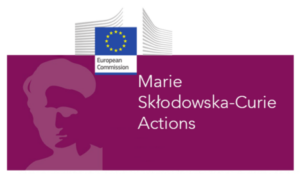
Funding source: EU
Since its launch in 2017, FutureNeuro has supported 11 successful Marie Skłodowska-Curie Actions
(MSCA) Individual Fellowship applications (Grant Agreement IDs: 753527, 796600, 798644, 846810,
844956, 840262, 897880, 101024, 101032321, 101064343, 101062165) attracting excellent researchers to
Ireland to further research into chronic and rare neurological diseases.
If you are an eligible postdoctoral researcher interested in applying for an MSCA Fellowship with
FutureNeuro please contact alicecoughlan@rcsi.ie
MSCA Innovative Training Networks

Funding source: EU
FutureNeuro researchers are involved in a number of Marie Sklodowska-Curie Actions (MSCA) Innovative Training Networks including BREAK BIOFILMS (Grant Agreement ID: 813439) and HaPpY (Grant Agreement ID: 955684).
